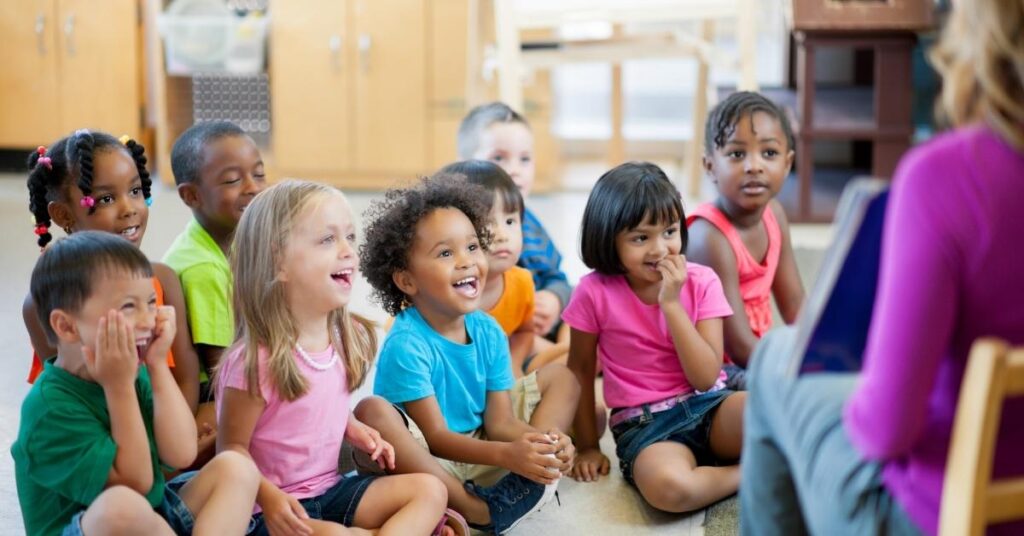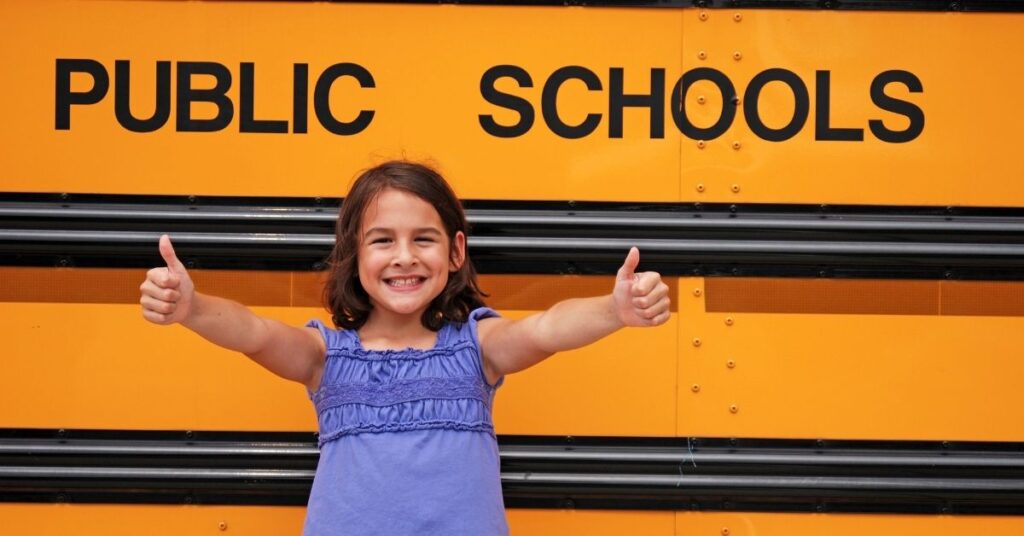Moving to a new country in itself is hard, but finding the right school for your child in a place you’re not used to, can be really overwhelming. As an expat in Denmark, you’re probably wondering: Will my child get quality education in Denmark? Will they be able to adapt to a new language and culture? These are valid concerns, and you’re not the only one worrying about this.
Denmark is a great country if you want access to some excellent educational facilities, be it public, private, or international schools. Sometimes this isn’t too obvious for many people when struggling with other aspects of settling in your new life. The good news? Danish schools are known for their inclusive approach and high academic standards, and there are plenty of resources to help expat families make a smooth transition.
In this guide, you will learn how the Danish education system works, what options you have, and how to make the right choice for your child. Are you curious about what public schools have to offer? Do you have any interest in private or international alternatives? Or maybe you’re just simply worried about how well your kid will fit in? The following guide will bring clarity and confidence before you make the decision.
Overview of Education in Denmark

Denmark prides itself on providing a holistic, student-centred approach to education, which has earned it a reputation for high academic standards. The Danish education system is structured into different stages, each designed to support children’s development from early childhood through to their teenage years. Whether you choose a public, private, or international school, the emphasis is always on quality education in Denmark, ensuring all children have the chance to thrive.
1. Preschool (Ages 0-6)
Education in Denmark begins informally with preschool (also known as børnehave), which are typically not mandatory but widely attended. These early years focus on social development, play-based learning, and fostering creativity. While not academic in nature, preschools in Denmark help children build the foundation for formal education, promoting emotional intelligence, communication, and cooperation.
Different tests will also be performed, such as language testing. This is nothing to stress about, but is a useful tool for when the children are handed over to the schools, informing the teachers about what to be aware of. Preschools are typically separated into two different units; daycare (ages 0-3) and kindergarten (ages 3-6). Often you will find them in the same building, making it easy to drop off/pick up siblings.
2. Primary and Lower Secondary School (Folkeskole) (Ages 6-16)
Compulsory education starts at age 6 and lasts until the age of 16. Danish Folkeskole encompasses both primary and lower secondary education, where children progress from grade 0 (preparatory class) through to grade 9. The Folkeskole is designed to promote critical thinking, collaboration, and problem-solving skills, rather than just rote learning.
One hallmark of the Danish education system is its emphasis on the well-being of students. Danish schools focus on developing well-rounded individuals, combining academics with social and emotional growth. By the time students complete their lower secondary education, they have a strong foundation in core subjects like Danish, maths, and sciences, as well as creative and physical education.
It’s also possible for students to attend 10th grade, either at schools offering this, or at the privately-run boarding schools (Efterskole). These are typically specialized in given fields, such as sports, music, cooking, and even gaming.
3. Upper Secondary Education (Ages 16-19)
After completing the Folkeskole, students have the option to continue into upper secondary education, which is not mandatory but commonly pursued. There are several tracks they can choose from, depending on whether they want to pursue academic, technical, or vocational studies. For expats, international schools often offer globally recognised programmes like the International Baccalaureate (IB) that provide smooth transitions to universities worldwide.
A new school reform is underway in Denmark, which basically splits up the upper secondary education into three;
- Commerce oriented – for students who wish to learn more about business, commerce, sales and service
- Humanistic – a classic academic pursuit, focusing on social science, philosophy etc., but also offers the option to opt for chemistry, physics etc. One of the widest jack-of-all-trades upper secondary educations.
- Trade-Oriented EPX – a new offer in the government’s suggestion, making it possible to get an upper secondary education degree, while pursuing a specific trade-oriented education. This could be as a mason, carpenter, physical therapist etc.
Public, Private, and International Schools: What’s the Difference?
When it comes to schooling options, Denmark offers three main types: public (Folkeskole), private, and international schools. While the public school system is free and highly regarded, many expat families may also consider private or international schools, depending on their child’s needs.
- Public Schools
Public schools are the backbone of education in Denmark, offering free, high-quality education to all children, including expats. These schools follow the Danish curriculum and are predominantly taught in Danish, though many offer support for non-Danish speakers, including special language classes. Public schools emphasise inclusivity, and students are often grouped by ability in a way that fosters both academic and personal development. - Private Schools
Private schools (privatskoler) in Denmark often have smaller class sizes and may offer alternative teaching methods or specific religious or pedagogical orientations. They charge fees, but these are usually lower than in many other countries, as the government subsidises private education. While they follow the Danish curriculum, private schools may provide more flexibility in terms of educational approach and student support. - International Schools
For expat families who are concerned about language barriers or plan to stay in Denmark for a shorter period, international schools are an attractive option. These schools typically follow internationally recognised curricula, such as the International Baccalaureate (IB) or the British curriculum (IGCSE), and teach in English or other languages. International schools offer a multicultural environment and cater specifically to the needs of expat children, making the transition smoother.
Public Schools Education in Denmark

Public schools in Denmark, known as Folkeskole, are the cornerstone of the country’s education system. They offer free, high-quality education to all children, including those from expat families. The Danish public school system is designed not only to provide academic instruction but also to foster social and emotional development. They create well-rounded students ready to contribute to society.
Free, High-Quality Education in Denmark
One of the key advantages of Denmark’s public schools is that they are free, even for expats. This is part of Denmark’s commitment to making education accessible to everyone, regardless of their background. Despite being free, the standard of education remains exceptionally high. The Danish government invests heavily in public schools to ensure that every child receives a strong education. Class sizes are generally small, which allows for more individualised attention and a focus on student well-being. Teachers are highly trained and work closely with students to support both their academic and personal growth.
Public schools in Denmark follow a national curriculum that promotes critical thinking, collaboration, and creativity, moving beyond traditional rote learning. Subjects like Danish, mathematics, science, and history are taught alongside physical education and the arts. These ensure that students receive a balanced and comprehensive education.
The Role of the Danish Language in Public Schools
Public schools in Denmark primarily operate in Danish, so language is a key consideration for expat families. Although Danish is the main language, schools are experienced in helping non-Danish speakers integrate into the classroom. They offer special language classes to help expat children learn Danish and adapt to their new environment. These classes aim to make students proficient in Danish so they can fully participate in regular activities over time.
Learning a new language can feel overwhelming, but the Danish education system focuses on inclusion. Teachers are skilled in supporting children from different cultural and linguistic backgrounds. Schools also provide extra help to make sure non-Danish speakers don’t fall behind academically.
Support for Non-Danish Speakers
Denmark’s public schools are well-equipped to support expat children. They offer resources like integration programs and language support tailored to non-Danish speakers. Many schools also have international coordinators to help expat families with enrollment and settling into the system.
Language learning is handled with patience and flexibility. Children can learn at their own pace while getting the academic help they need. Schools often have “reception classes” for new arrivals, focusing on Danish language skills before moving them into regular classes. This approach ensures all students, no matter their language background, can thrive in Denmark’s education system.
Private and International Schools

For expat families looking for alternatives to public schools, Denmark offers a range of private and international schools that provide high-quality education tailored to diverse needs. While public schools are free, private and international schools typically charge fees, but they come with distinct advantages, especially for families who may not be planning to stay in Denmark long-term or want their children to continue with a familiar curriculum.
Availability of Private and International Schools
Private schools (privatskoler) and international schools are widely available in Denmark, especially in larger cities like Copenhagen, Aarhus, and Odense. These schools offer smaller class sizes and often more personalised teaching approaches, making them an attractive option for families seeking an alternative to public education.
- Private Schools:
Private schools in Denmark are partially funded by the government, which helps keep tuition fees lower than in many other countries. While these schools follow the national Danish curriculum, they often have a particular educational philosophy, such as Montessori or Waldorf, or may be associated with a specific religious group. Private schools generally offer a more tailored approach to teaching, allowing for greater flexibility in how students are taught and assessed. - International Schools:
International schools are ideal for expat families who want their children to follow a curriculum that is recognised globally, such as the International Baccalaureate (IB), British A-levels, or American High School diplomas. These schools cater specifically to expat children and usually teach in English or other international languages. The availability of international schools means that children can seamlessly transition back to schools in their home country or another international destination if the family relocates again.
Fees Involved
Unlike public schools, which are free for all residents, private and international schools in Denmark charge tuition fees. However, private schools are heavily subsidised by the Danish government, meaning fees are often much lower than in other countries. The fees for international schools can vary significantly depending on the school’s location, curriculum, and facilities, but they tend to be higher than private schools due to the specialised education they offer. Some expat families may also receive tuition support from their employers, which can offset these costs.
Despite the fees, both private and international schools maintain high standards of education, making them a solid investment for families seeking flexibility or specific academic paths.
Curriculum Differences
One of the key distinctions between public schools and private or international schools in Denmark lies in the curriculum. While public and private schools follow the Danish national curriculum, international schools offer global curricula tailored to expat students.
- Private Schools:
Although private schools follow the Danish curriculum, they may introduce alternative teaching methods or add additional subjects that cater to the individual needs of students. They often focus on fostering creativity, problem-solving, and individual growth, while maintaining the academic rigour found in public schools. - International Schools:
International schools in Denmark offer globally recognised programmes like the International Baccalaureate (IB), British GCSEs and A-levels, or the American High School diploma. These curricula are designed to be internationally transferable, allowing children to adapt easily if they relocate. International schools often have a multicultural student body and staff, creating a globally minded atmosphere that helps students develop a broad perspective on education and the world.
Language of Instruction
One of the primary reasons expat families choose private or international schools is the language of instruction.
- Private Schools:
Most private schools in Denmark teach in Danish, though some may offer bilingual programmes that include English or another language. For expat families looking to stay long-term, private schools can be a good option for children to learn Danish while still benefiting from a smaller, more flexible school environment. - International Schools:
International schools teach mainly in English or another international language, making them ideal for children not yet comfortable with Danish. They also suit those needing to continue education in English. This setup helps expat children transition smoothly, avoiding language barriers in a new academic environment.
Catering to Expat Children
Private and international schools in Denmark cater well to the unique needs of expat children. International schools, especially, offer a familiar environment for those who attended similar schools abroad. They provide strong support networks, helping children adjust to life in Denmark without the immediate need to learn a new language.
Private schools, while mostly Danish-speaking, offer extra support for non-Danish speakers. They help students integrate into the Danish community while delivering high-quality education. With a personalized approach, these schools enable teachers to monitor expat students’ progress closely and provide necessary support.
Summary of Differences Between Public, Private, and International Schools in Denmark
| Feature | Public Schools | Private Schools | International Schools |
|---|---|---|---|
| Cost | Free | Low to moderate fees (subsidised by the government) | Moderate to high fees (depends on curriculum and location) |
| Curriculum | Danish national curriculum | Danish national curriculum with flexibility (e.g., Montessori, religious) | International curricula (e.g., IB, British, American) |
| Language of Instruction | Primarily Danish | Primarily Danish, some bilingual options | Primarily English or other international languages |
| Class Size | Moderate to large | Smaller class sizes with more individualised attention | Small to moderate, focused on multicultural student bodies |
| Student Population | Mostly Danish, with some expats | Mixed, including Danish and some expat children | Primarily expat families, with a multicultural student base |
| Adaptation for Expats | Danish language classes for non-Danish speakers | Extra language support for expats, more personalised teaching | Tailored to expats, focus on easy adaptation for international students |
| Ideal For | Long-term expat families wanting integration into Danish culture | Families seeking a personalised education with a local focus | Expats wanting a globally recognised curriculum and English instruction |
| Extracurricular Activities | Focus on national programmes and community involvement | Varies by school, often offers diverse extracurriculars | Typically offers a wide range of international programmes and activities |
Conclusion
Navigating the education system in Denmark can be challenging. However, Denmark offers high-quality options for both local and expat families. You can choose from free, reputable public schools, flexible private schools with personalized approaches, or globally-focused international schools. Each option promises quality education.
Public schools are inclusive and provide excellent support for non-Danish speakers. Private schools combine Danish education with alternative philosophies. International schools offer a smooth transition for expat children, with familiar curricula and English instruction. Whichever path you choose, Denmark’s commitment to education ensures your child receives the tools and support needed for academic and personal success.


